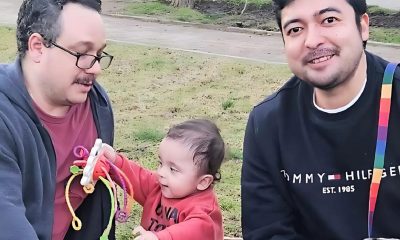World
Top 10 international LGBTQ news stories of 2024
Pope reaches out, Oct. 7 aftermath, Trump rattles activists
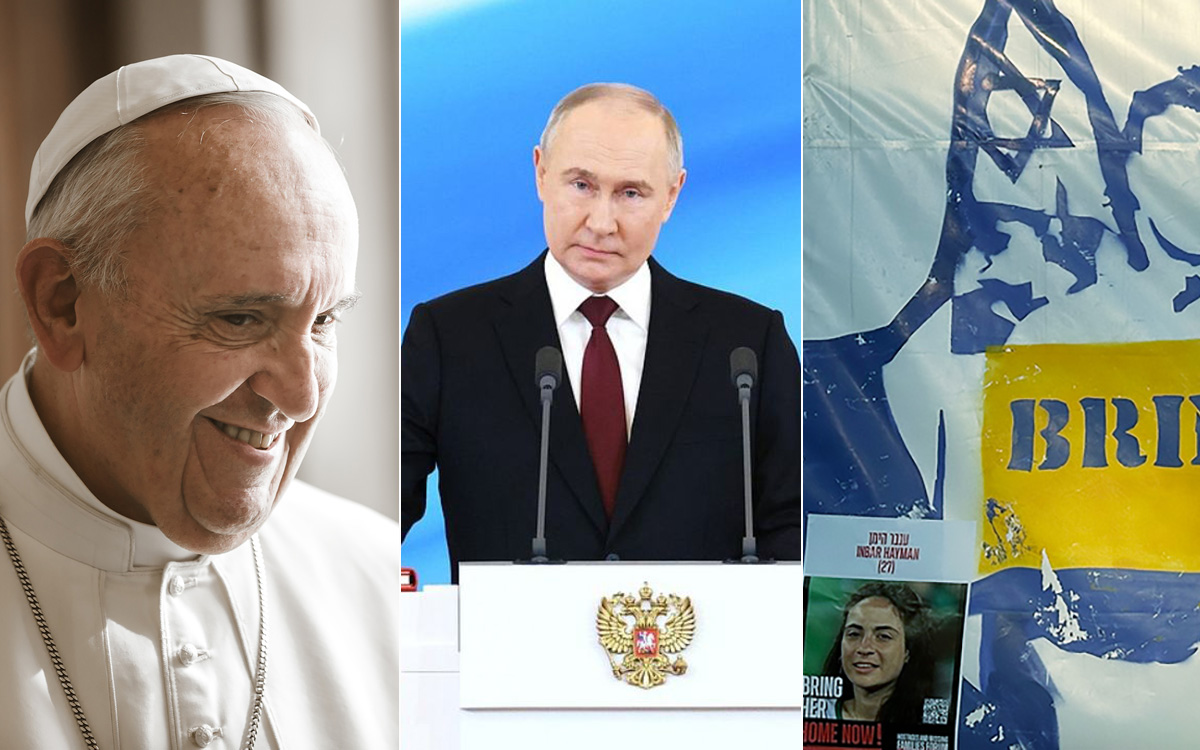
The extension of marriage rights to same-sex couples, anti-LGBTQ crackdowns, war, and elections are among the issues that made headlines around the world over the past year. Here are the top international stories of 2024.
#10 African countries move to criminalize homosexuality
Ghanaian MPs on Feb. 28 passed the Promotion of Proper Human Sexual Rights and Ghanaian Family Values Bill that would, among other things, criminalize allyship. Outgoing President Nana Akufo-Addo did not immediately sign the bill, citing the outcome of a Supreme Court case.
Burkina Faso Justice Minister Edasso Bayala on July 10 announced consensual same-sex sexual acts are illegal in the country. Mali’s Transitional National Council on Oct. 31 adopted a draft penal code that would criminalize acts of homosexuality.
The Dominica High Court of Justice, on the other hand, on April 22 struck down provisions of a law that criminalized consensual same-sex sexual relations in the Caribbean nation. A judge on St. Vincent and the Grenadines’s top court on Feb. 16 dismissed two cases that challenged the country’s sodomy laws.
#9 More countries extend marriage rights to same-sex couples
Greece, Liechtenstein, and Estonia in 2024 extended marriage rights to same-sex couples.
Thai King Maha Vajiralongkorn on Sept. 24 approved a marriage equality bill that lawmakers passed earlier in the year. It is slated to take effect on Jan. 22, 2025. Liechtenstein’s marriage equality law will take effect on New Year’s Day.
The Dutch Supreme Court on July 12 ruled Aruba and Curaçao must extend marriage rights to same-sex couples. Czech lawmakers in February rejected a marriage equality bill.
#8 Gay, lesbian lawmakers make headlines
Steve Letsike, a lesbian who founded Access Chapter 2, a South African advocacy group, on May 29 won a seat in the South African National Assembly. President Cyril Ramaphosa later named her to his Cabinet.
French President Emmanuel Macron on Jan. 9 named Gabriel Attal as the country’s first openly gay prime minister. Attal resigned in July after Macron’s party lost its overall majority in the National Assembly.
Then-Irish Prime Minister Leo Varadkar on March 20 announced his resignation. He became the country’s first gay prime minister in 2017.
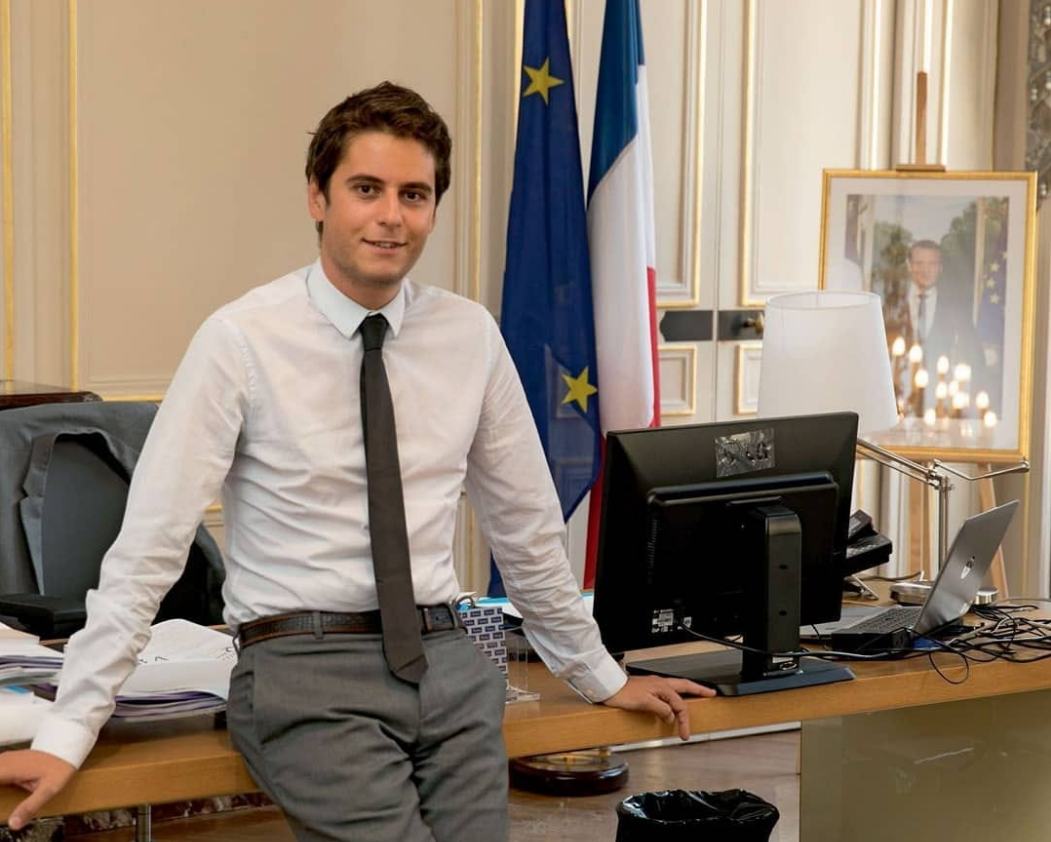
#7 Algerian boxer Imane Khelif faces questions over gender at Olympics
Algerian boxer Imane Khelif faced questions over her gender during the 2024 Paris Olympics.
Khelif won the Olympic gold medal in the women’s 66-kilogram competition on Aug. 10. She was born female and does not identify as transgender or intersex. The International Olympic Committee said Khelif “is not a man fighting a woman.”
Khelif after the games filed a criminal complaint against JK Rowling and Elon Musk with French authorities. The lawsuit claims the two engaged in “acts of aggravated cyber harassment.”
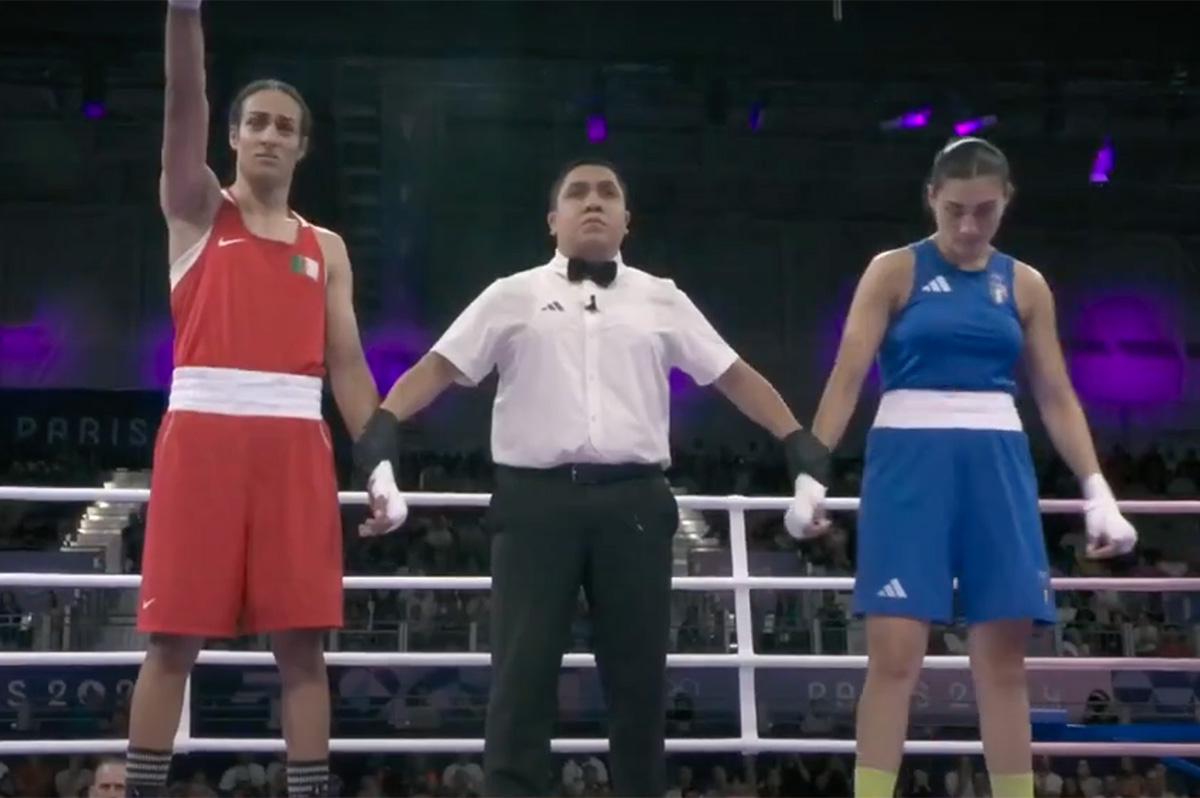
#6 Mexico bans ‘conversion therapy’
The Mexican Senate on April 25 overwhelmingly approved a bill that bans so-called conversion therapy in the country.
The measure passed by a 77-4 vote margin with 15 abstentions. The Chamber of Deputies, the lower house of Mexico’s congress, in March approved the bill that, among other things, would subject conversion therapy practitioners to between two and six years in prison and fines.
Canada, Brazil, Belgium, Germany, France, and New Zealand are among the countries that ban conversion therapy.
#5 Germany’s Self-Determination Act takes effect
A German law that simplifies the process for transgender or nonbinary people to legally change their name and gender in official documents took effect on Nov. 1.
The country’s Cabinet on Aug. 21 approved the Gender Self-Determination Act.
#4 Russia’s anti-LGBTQ crackdown continues
The Russian government in 2024 continued its anti-LGBTQ crackdown.
President Vladimir Putin last month signed a bill that bans the adoption of Russian children in countries where gender transition is legal.
Media reports indicate authorities on Nov. 30 raided three Moscow nightclubs that have hosted LGBTQ-specific events. Authorities in October raided two bars in the Russian capital and in Yekaterinburg. The raids coincided with National Coming Out Day events.
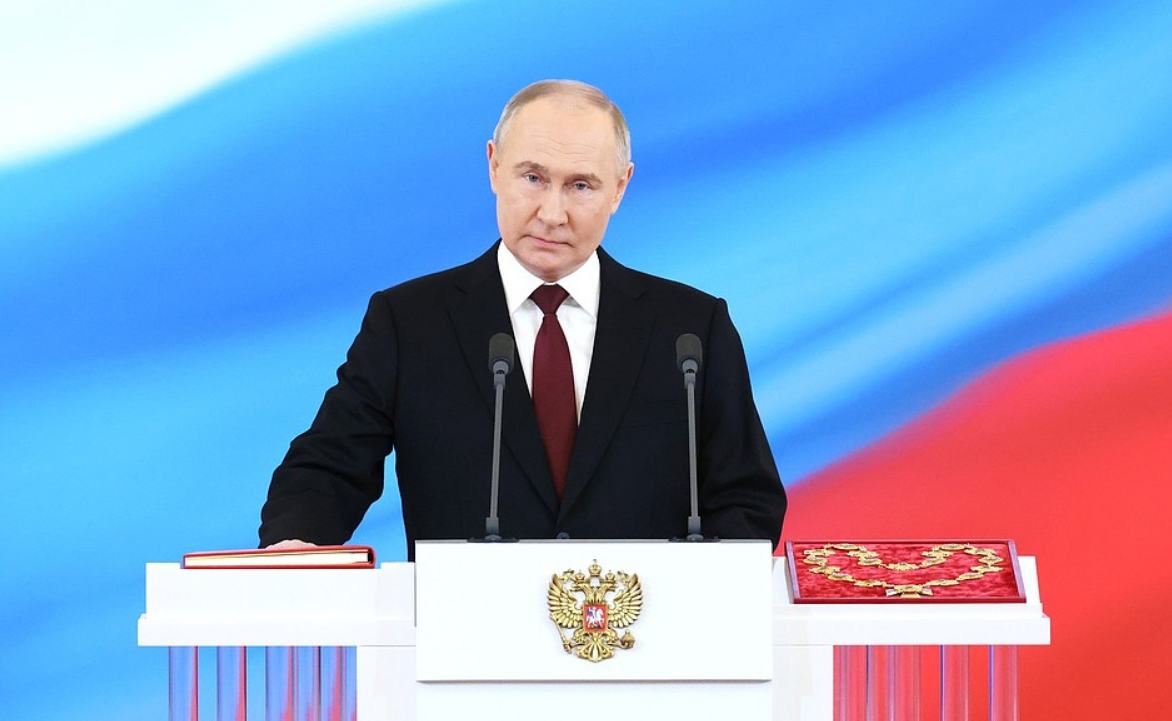
#3 Pope Francis continues outreach to LGBTQ Catholics
Pope Francis in 2024 continued his outreach to LGBTQ Catholics.
The pontiff on Oct. 12 met with a group of transgender and intersex Catholics and LGBTQ allies at the Vatican. Sister Jeannine Gramick, co-founders of New Ways Ministry, a Maryland-based organization that advocates on behalf of LGBTQ Catholics, arranged the meeting that took place at Casa Santa Marta, Francis’s residence in Vatican City.
Clare Byarugaba of Chapter Four Uganda and Rightify Ghana Director Ebenezer Peegah met with Francis at the Vatican on Aug. 14.
Francis earlier this year during an interview with CBS Evening News anchor Norah O’Donnell said priests can bless gays and lesbians who are couples, as opposed to their unions. Francis in a declaration the Vatican’s Dicastery for the Doctrine of the Faith released on March 25 condemned gender-affirming surgeries and “gender theory.”

#2 LGBTQ Israelis, Palestinians grapple with Oct. 7 aftermath
The Washington Blade traveled to Israel in October to cover the first anniversary of Oct. 7 and how LGBTQ Israelis and Palestinians continue to grapple with its aftermath.
Jerusalem Open House for Pride and Tolerance, Pride House of Be’er Sheva, the Aguda, the Israeli Transgender Association, and other Israeli advocacy groups continue to offer access to mental health services, housing programs, and other needs to those directly impacted by Oct. 7.
The Blade interviewed Omer Ohana, who successfully lobbied Israeli lawmakers to amend the country’s Bereaved Families Law to recognize LGBTQ widows and widowers of fallen Israel Defense Forces soldiers. Hamas militants on Oct. 8, 2023, killed his fiancé, IDF Maj. Sagi Golan, in a kibbutz near the Gaza Strip.
LGBTQ aid workers who have worked with queer Palestinians in Gaza over the last year also spoke with the Blade.
“It became very apparent to me that everything we did was like pouring water into the desert,” said Rain Doe Dubilewski of Safebow, which helped more than 300 people evacuate Gaza. “There was nothing we can offer that is lasting or stable for the Palestinian people.”

#1 Trump re-election sparks concern among LGBTQ activists around the world
President-elect Donald Trump’s election in November sparked concern among LGBTQ activists and advocacy groups around the world.
“I worry that Trump’s win means no protection for global LGBTQ+ human rights,” Sexual Minorities Uganda Executive Director Frank Mugisha told the Blade.
Esteban Paulón, a long-time LGBTQ activist in Argentina who won a seat in the country’s Congress in 2022, echoed Mugisha. Outright International Executive Director Maria Sjödin in an email to their group’s supporters after the election said the results “have raised deep concerns for many of us who care about fundamental human rights, freedoms, and democratic norms for LGBTIQ people and everyone else around the world.”
Trump during his first administration tapped then-U.S. Ambassador to Germany Richard Grenell to lead an initiative that encouraged countries to decriminalize consensual same-sex sexual relations. Activists with whom the Blade has previously spoken questioned whether this effort had any tangible results.
Argentina
Gay, nonbinary parent fights for family in Argentina’s courts
Leonardo Hatanaka alleges they were fired after requesting paternity leave

An unprecedented case could set an important legal precedent for the rights of labor rights for LGBTQ families in Latin America.
Leonardo Hatanaka, a Brazilian pharmaceutical professional, expects an imminent ruling from the Superior Court of Justice in the Autonomous City of Buenos Aires in a case that alleges discriminatory dismissal based on sexual orientation, gender identity, and xenophobia after their son Matteo’s birth in Argentina via “solidarity gestation.” Human rights organizations and international agencies have followed the case closely.
Genzyme de Argentina S.A. and Sanofi in 2023 fired Hatanaka weeks after they notified them of their son’s paternity and requested 180-day parental leave.
“Matteo’s birth was the realization of a dream and the right to form a family with love, dignity and equality, even if that means having to fight every day for our family to be recognized as such,” Hatanaka told the Washington Blade in an exclusive interview.
The National Institute Against Discrimination, Xenophobia and Racism, a government agency known by the acronym INADI that President Javier Milei’s administration has shut down, in November 2023 said Hatanka’s termination was motivated by discrimination based on sexual orientation and gender identity.
(Milei took office in December 2023.)
The General Directorate of Coexistence in Diversity in Buenos Aires’s government in 2024 said institutional xenophobia motivated the firing.
“I am a gay man, foreign, nonbinary, and I had requested to exercise my right to parental leave,” Hatanaka explained. “The company denied access to a basic right to care, which it does provide in other countries, and did not provide any medical coverage for our son, despite his legal registration with both parents’ names.”
Sanofi did not acknowledge responsibility, offer apologies or any kind of reparations, despite the two rulings.
“It was devastating. I was caring for a newborn, at a moment of enormous vulnerability, and the company chose just that moment to abandon us,” said Hatanaka.
The National Labor Court overturned an initial injunction that ordered Hatanaka’s reinstatement. Hatanaka appealed the decision to the Superior Court of Justice in the Autonomous City of Buenos Aires.
“I hope for justice; that the discrimination suffered is recognized, and that this ruling serves as a precedent for all diverse families and LGBTQ+ people who are seeing their rights violated,” said Hatanaka.
The Argentine LGBT Federation, SOS Homophobie in France, and Mothers of Resistance in Brazil are among the organizations that have expressed their support. The latest U.N. report on anti-LGBTQ discrimination also notes the case.
“Companies must go beyond marketing,” Hatanaka emphasized. “Real inclusion requires concrete actions, consistency, and respect for their own policies.”
Hatanaka stressed that “there are instruments such as the UN Guiding Principles on Business and Human Rights. It is time for them to comply with them.” The lawsuit has also become a symbol of the struggle for equality and protection of families with parents who are the same sex.
“I feel I represent many LGBTQ+ families who live in fear of losing everything by exercising their rights,” said Hatanaka. “LGBTQ+ parenting is legitimate, real and deserves protection. No family should be punished for existing.”
Myanmar
LGBTQ advocacy group joins Myanmar earthquake relief effort
March 28 quake killed thousands, devastated country’s second-largest city

A powerful earthquake that rocked Myanmar on March 28 unleashed devastation across the central part of the country.
The U.S. Geological Survey measured the quake at 7.7, and pinpointing its epicenter roughly 10 miles west of Mandalay, the country’s second-largest city. A 6.4-magnitude aftershock jolted the area 12 minutes later, compounding the destruction and deepening the crisis for a nation already strained by conflict.
The earthquake struck with terrifying intensity near its epicenter, wreaking havoc on Mandalay and the nearby city of Sagaing.
Mandalay, a bustling city of approximately 1.5 million residents, bore the brunt of the destruction. Among the most striking losses was the 12-story Sky Villa Condominium, which collapsed, leaving scores trapped beneath the wreckage. Rescue workers scrambled to pull survivors from the rubble, but the rising death toll underscored the tragedy’s magnitude.
In Sagaing, which is located closer to the epicenter, more than 70 percent of buildings sustained damage. The Ava Bridge, an essential artery spanning the Irrawaddy River, collapsed, cutting off a critical connection to Mandalay. The earthquake’s shallow depth of less than seven miles amplified its power, reducing homes, temples, and schools to rubble.
The earthquake’s death toll continues to climb, with at least 3,649 confirmed dead, more than 5,000 injured, and approximately 145 people missing. Amid the widespread devastation, questions loom about the impact on vulnerable populations. The Washington Blade reached out to Colors Rainbow, an organization advocating for LGBTQ rights in Myanmar, to understand how the crisis has affected one of the nation’s most marginalized communities.
Colors Rainbow Executive Director Hla Myat Tun spoke about how his organization is working to address the crisis faced by Myanmar’s LGBTQ community in the aftermath of the earthquake.
Colors Rainbow has implemented a system of multipurpose cash transfers, directing funds to local LGBTQ partner organizations. These grassroots partners, in turn, provide essential support to affected individuals that includes emergency cash assistance, food, non-food items, clean water, and basic emotional support tailored to the immediate needs of their communities.
“We estimate that around 500–800 LGBTQ individuals have been impacted in the affected areas, particularly in Mandalay Region, Sagaing Region, and southern Shan state,” said Hla Myat Tun. “So far, we have been able to directly assist around 80–100 LGBTQ individuals.”
Hla Myat Tun told the Blade that Colors Rainbow is actively gathering data to assess the specific challenges that LGBTQ people are facing in the aftermath of the earthquake.
Preliminary observations, he noted, point to heightened vulnerability among LGBTQ people, driven by social exclusion and limited access to mainstream humanitarian aid. Hla Myat Tun, however, emphasized more comprehensive information is necessary to fully understand the scope of their needs and vulnerabilities in this crisis.
“We are partnering with international LGBTQ and feminist organizations that focus on displaced communities,” said Hla Myat Tun. “These partners provide emergency funds, and we coordinate with local LGBTQ groups to deliver aid directly to affected individuals on the ground.”
Addressing reports of military restrictions on humanitarian aid, Hla Myat Tun explained how Colors Rainbow is managing to reach LGBTQ people who are in conflict zones and areas the military junta controls. Hla Myat Tun highlighted the importance of the organization’s trusted local LGBTQ partners, who are embedded in these regions. Their presence and established networks, he said, are vital in navigating restricted areas and ensuring that aid reaches the LGBTQ people who are most in need.
Hla Myat Tun also provided insight into how Colors Rainbow is tailoring its relief efforts to meet the LGBTQ community’s specific needs.
He said his organization is gathering information directly from LGBTQ people through close coordination with its local partners, relying on both formal and informal communication channels. Hla Myat Tun told the Blade his team conducts daily check-ins via quick telephone calls, ensuring a continuous flow of information to guide their response efforts despite limited internet access, electricity and other challenges.
“Our approach is collaborative — we set strategies and share responsibilities to respond flexibly and safely, based on the rapidly changing local context,” he said. “Personal stories are being documented, but for security reasons, we are cautious about sharing them publicly.”
When asked whether staff or volunteers had harassment, discrimination, or violence while delivering aid — a concern given the precarious legal and social climate for LGBTQ people in Myanmar — Hla Myat Tun said there have been no reported incidents thus far.
“So far, we haven’t received any reports from our staff or local partners about harassment or violence while delivering aid,” he noted, emphasizing Colors Rainbow remains vigilant and has implemented robust safety protocols to protect all involved.
Colors Rainbow relies primarily on funding from international LGBTQ-focused partners. He noted, however, humanitarian funding specifically dedicated to LGBTQ communities remains vastly under-resourced, relative to the pressing needs on the ground. Hla Myat Tun said this shortfall severely limits the scale and reach of Colors Rainbow’s efforts.
“While Myanmar’s legal framework remains outdated, societal attitudes — especially during the civilian government — have shown signs of progress,” said Hla Myat Tun. “We have seen positive change thanks to the work of local LGBTQ organizations.”
“In the current crisis, many communities are working together despite legal barriers. However, in areas without LGBTQ-led organizations, inclusive humanitarian responses are still lacking,” he added. “There’s an urgent need for international humanitarian actors to understand and implement LGBTQ-inclusive practices in Myanmar.”
When asked about long-term strategies to support the recovery and resilience of LGBTQ communities as Myanmar rebuilds, Hla Myat Tun affirmed Colors Rainbow is deeply committed to fostering resilience. The organization’s initiatives include leadership development, community empowerment through training and workshops, sub-granting programs, and organizational development support. He also highlighted Colors Rainbow’s advocacy for LGBTQ-inclusive policies and collaboration with ethnic groups to promote an inclusive federal democracy, and specifically thanked Outright International, a global LGBTQ and intersex rights group, for “amplifying our work.
“This kind of international attention shines a spotlight on the challenges LGBTQ communities in Myanmar are facing and helps open doors for more support,” Hla Myat Tun told the Blade. “It also boosts visibility and solidarity, both locally and globally, which we deeply appreciate.”
Hungary
Hungarian MPs amend constitution to ban public LGBTQ events
Viktor Orbán’s government spearheaded amendment

Hungarian MPs on Monday voted to amend their country’s constitution to ban public LGBTQ events.
The vote took place less than a month after lawmakers banned Pride events and gave authorities the green light to use facial recognition technology to identify those who participate in them.
The Associated Press notes MPs approved the constitutional amendment — which Prime Minister Viktor Orbán’s Fidesz-KDNP coalition government proposed — by a 140-21 vote margin. Authorities before the vote removed a group of protesters who tried to block the entrance to a parliament parking garage.
Orbán’s government over the last decade has moved to curtail LGBTQ and intersex rights in Hungary.
A law that bans legal recognition of transgender and intersex people took effect in 2020. Hungarian MPs that year also effectively banned same-sex couples from adopting children and defined marriage in the constitution as between a man and a woman.
An anti-LGBTQ propaganda law took effect in 2021. The European Commission sued Hungary, which is a member of the European Union, over it.
MPs in 2023 approved the “snitch on your gay neighbor” bill that would have allowed Hungarians to anonymously report same-sex couples who are raising children. The Budapest Metropolitan Government Office in 2023 fined Lira Konyv, the country’s second-largest bookstore chain, 12 million forints ($33,115.76), for selling copies of British author Alice Oseman’s “Heartstopper.”
Former U.S. Ambassador to Hungary David Pressman, who is gay, participated in the Budapest Pride march in 2024 and 2023. Pressman was also a vocal critic of Hungary’s anti-LGBTQ crackdown.
The Washington Blade has reached out to Budapest Pride for comment on the constitutional amendment.
-

 Opinions5 days ago
Opinions5 days agoIt’s time for new leadership on the Maryland LGBTQIA+ Commission
-

 The White House4 days ago
The White House4 days agoWhite House does not ‘respond’ to reporters’ requests with pronouns included
-

 Arts & Entertainment5 days ago
Arts & Entertainment5 days ago‘Gay is Good’ Pride Pils Can Celebrates Frank Kameny’s 100th Birthday for WorldPride in D.C.
-

 Sponsored5 days ago
Sponsored5 days agoTHC Drinks: What You Should Know About Cannabis Beverages

